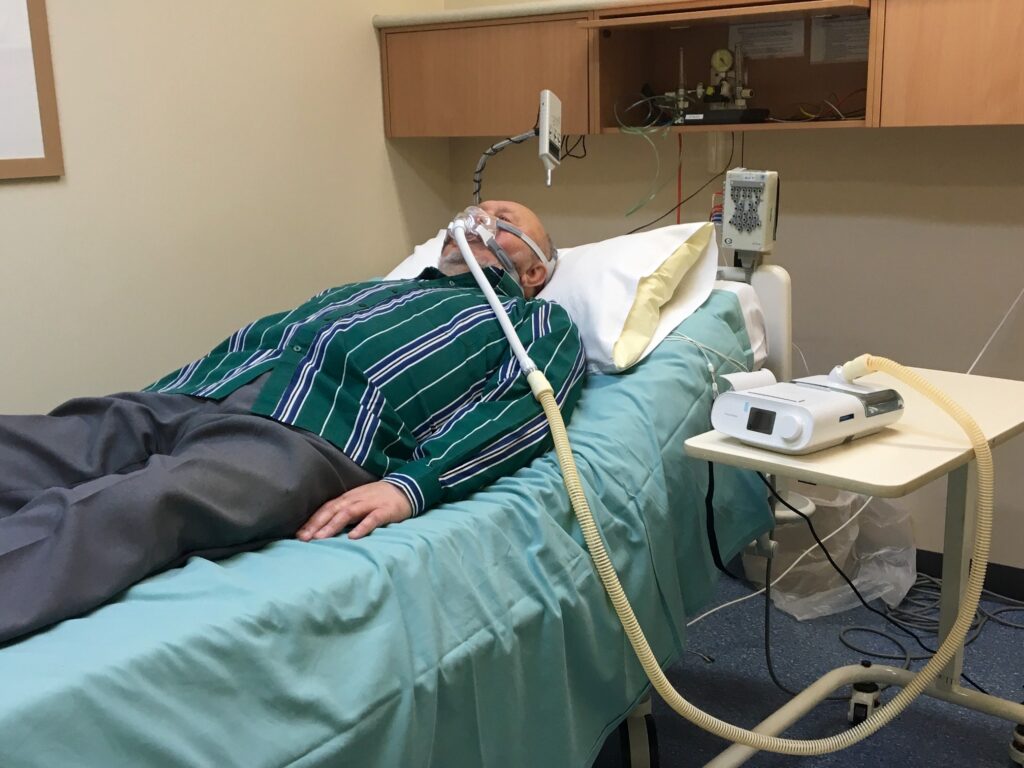Introduction: A Condition Often Overlooked
When people think of sleep apnea, they often picture severe cases — loud, chronic snoring, gasping for air, and constant fatigue. But sleep apnea isn’t always that dramatic. Mild sleep apnea exists in a quieter, subtler form, and it’s far more common than many realize.
It’s tempting to dismiss mild sleep apnea as “not a big deal” — after all, the word mild makes it sound harmless. However, even mild cases can affect your health, mood, and daily functioning. Left untreated, they can progress or contribute to more serious problems, including cardiovascular issues, high blood pressure, and impaired cognitive performance.
Understanding what mild sleep apnea is, its causes, its symptoms, and how to address it can help you make informed decisions about your health.
Causes of Sleep Apnea: Why It Happens
Sleep apnea happens when breathing repeatedly stops or becomes shallow during sleep. In mild cases, these interruptions occur fewer times per hour than in moderate or severe forms, but the underlying causes are often the same.
1. Obstructive Sleep Apnea (OSA)
The most common type of mild sleep apnea is obstructive, where throat muscles relax too much during sleep and block the airway.
See more: Sleep Study Brisbane: How to Prepare for Your Appointment
Risk factors include:
- Excess body weight (even a small gain can narrow the airway)
- Naturally narrow throat or airway structure
- Large tonsils or adenoids
- Sleeping on the back
- Alcohol or sedative use before bed
- Smoking, which inflames airway tissues
2. Central Sleep Apnea (CSA)
Less common, central sleep apnea occurs when the brain doesn’t send proper signals to the muscles that control breathing. While mild CSA is rare, it can be linked to heart conditions, neurological disorders, or certain medications.
3. Lifestyle Triggers
Certain habits can make even mild sleep apnea worse:
- Poor sleep hygiene (irregular sleep schedules, late caffeine intake)
- Lack of exercise, which can affect airway tone
- Chronic nasal congestion from allergies or sinus problems
Symptoms of Mild Sleep Apnea: Subtle but Significant
Because mild sleep apnea often presents fewer breathing pauses, symptoms may be easy to overlook or misattribute to stress, poor sleep habits, or aging.
Common symptoms include:
- Snoring — Not always loud or every night, but frequent enough to disrupt your or your partner’s sleep.
- Morning headaches — Caused by fluctuations in oxygen levels during the night.
- Daytime fatigue — Even after what seems like a full night’s rest.
- Dry mouth or sore throat — A sign you may be breathing through your mouth while sleeping.
Subtle signs you might miss:
- Irritability or mood swings — Poor sleep quality can make you more emotionally reactive.
- Mild forgetfulness — Sleep disruptions affect memory consolidation.
- Difficulty concentrating — You might notice this at work or when reading.
- Frequent nighttime urination — Sleep interruptions can affect bladder signals.
Example scenario:
Sarah, 42, never thought of herself as having a sleep problem. She just felt “a bit tired” during the day and occasionally got headaches. It wasn’t until her husband noticed she sometimes stopped breathing briefly at night that she sought a sleep study. The result? Mild obstructive sleep apnea — a condition she’d been unknowingly living with for years.
Why Mild Sleep Apnea Still Matters
Many people assume that if their sleep apnea is mild, it doesn’t require treatment. But even mild cases can:
- Increase risk of high blood pressure over time
- Affect blood sugar control, especially in those with prediabetes or diabetes
- Impair reaction times (important for driving or operating machinery)
- Reduce mental sharpness and memory retention
- Contribute to low mood or anxiety
In short, mild sleep apnea can chip away at your overall health and well-being.
Treatment Options for Mild Sleep Apnea
The good news is that mild sleep apnea can often be managed effectively — sometimes with simple lifestyle changes, and sometimes with medical devices or procedures.
1. CPAP Therapy (Continuous Positive Airway Pressure)
CPAP is the gold standard for sleep apnea treatment, even in mild cases where symptoms are affecting quality of life. The device keeps your airway open by providing a steady stream of air through a mask.

Pros:
- Highly effective in reducing breathing pauses
- Improves sleep quality quickly
Cons:
- Requires adjustment to wearing the mask nightly
- May feel cumbersome for mild cases unless symptoms are significant
2. Oral Appliances
For mild OSA, dentists can create custom mouthpieces that reposition the jaw or tongue to keep the airway open.
Scenario: Tom, 50, had mild sleep apnea but couldn’t tolerate a CPAP mask. His oral appliance worked well, reducing his apnea episodes and helping him feel more energized during the day.
3. Weight Management
Even mild excess weight around the neck and upper airway can contribute to airway narrowing. A modest weight loss of 5–10% can improve symptoms significantly.
4. Sleep Position Therapy
Sleeping on your side instead of your back can reduce airway obstruction. Special pillows or wearable devices can help train your body to stay in a side-sleeping position.
5. Lifestyle and Habit Changes
- Avoid alcohol and sedatives before bed
- Quit smoking to reduce airway inflammation
- Maintain regular sleep and wake times
- Treat allergies or chronic sinus congestion
6. Surgery
Surgery is rarely the first choice for mild sleep apnea but may be considered if anatomical issues — such as large tonsils — are the primary cause.
Living Well with Mild Sleep Apnea
If you’ve been diagnosed with mild sleep apnea, the key is not to panic but also not to ignore it. Treatment doesn’t always mean a lifetime of machines — for many, it’s about making small, sustainable adjustments.
Example: Maria, 38, reduced her symptoms by losing a small amount of weight, switching to side sleeping, and using a dental appliance. Within months, her daytime fatigue faded, and her sleep quality improved noticeably.
Conclusion: Don’t Ignore the “Mild” Label
Mild sleep apnea may not sound alarming, but it’s still a condition that can affect your health in meaningful ways. Even subtle sleep disruptions can take a toll on your heart, brain, and mood over time.
If you suspect you might have sleep apnea — whether mild or severe — the best step is to talk to your doctor or a sleep specialist. A simple sleep study can give you answers, and early treatment can prevent complications while restoring the energy and clarity you deserve.
Remember, there’s nothing “mild” about the impact poor sleep can have on your life. Addressing it now can help you sleep soundly, think clearly, and live better for years to come.

